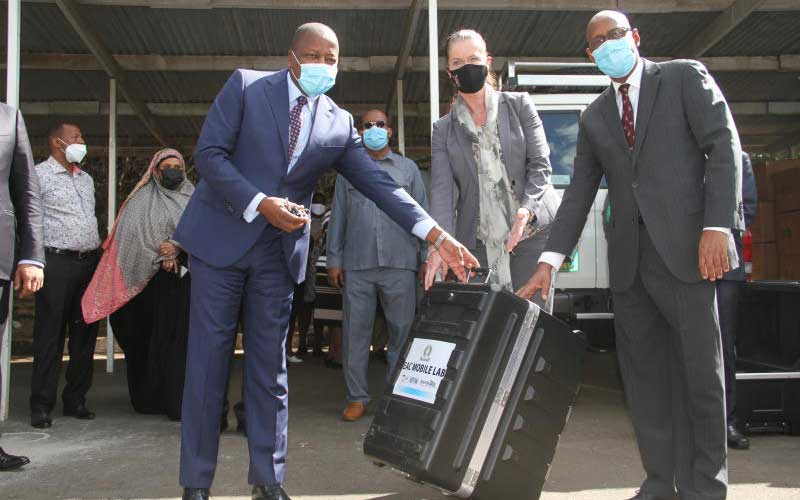×
The Standard e-Paper
Stay Informed, Even Offline

Health Cabinet Secretary Mutahi Kagwe (left) and Industrialisation CS Aden Mohamed receive mobile testing laboratories for Covid-19 from German Ambassador to Kenya Annett Günther at Afya House, Nairobi, yesterday. [Edward Kiplimo, Standard]
Covid-19 cases have crossed the 1,000 mark, even as the government defends testing that saw Tanzanians diagnosed with the disease at the border.







